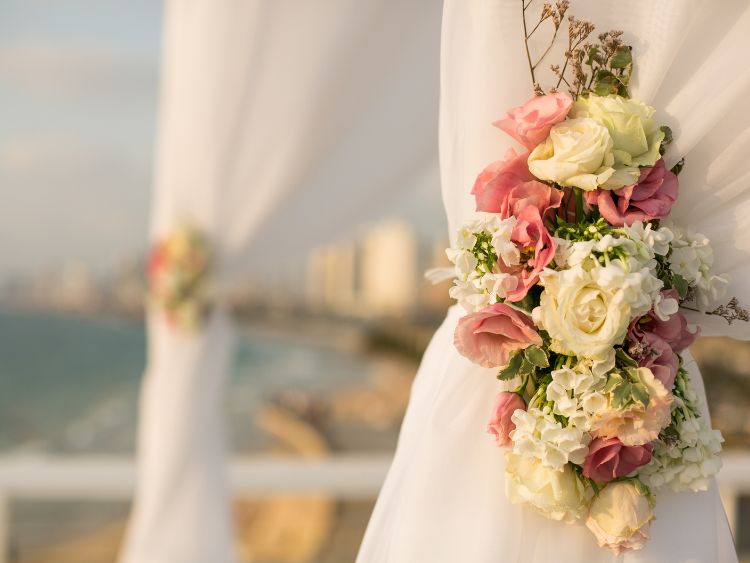Planning a wedding can feel like a marathon and a sprint wrapped into one grand, once-in-a-lifetime event. With all the details—big and small—to consider, it’s easy to feel overwhelmed. But don’t worry! Whether you’re dreaming of a lavish affair or an intimate gathering, this guide will walk you through every step of the wedding planning journey.
So, let’s dive into everything you need to make your wedding day one for the ages!
Step 1: Establish Your Budget (Yes, Start Here)
Let’s talk budget, the foundation of any successful wedding plan. Knowing how much you can comfortably spend will shape the rest of your choices. From the venue to the catering and all the little extras, budgeting keeps your plans grounded and realistic.
- Assess Your Finances: Determine how much you, your partner, and any family members are willing to contribute.
- Prioritize Expenses: Decide which elements are most important. Is it the venue? The food? The music?
- Allocate Funds Wisely: General rule of thumb—50% for the venue, 15% for catering, 10% for décor, and the rest for attire, photography, and miscellaneous costs.
Pro Tip:
Keep a small emergency fund for unexpected costs. Wedding budgets have a way of expanding!
Step 2: Choose Your Date and Venue
Once you’ve got the budget set, the next big decision is the date and venue. These choices affect all other aspects of planning, including your guest list, vendors, and even your theme.
- Decide on the Date: Think about the season, any holidays, and the availability of family members. Weekend weddings are popular but can be pricier.
- Explore Venue Options: Start by listing the must-haves for your venue (capacity, style, location) and book it early, especially if you have your heart set on a specific spot.
Venue Ideas:
- Traditional Venues: Churches, banquet halls, and hotels.
- Outdoor Venues: Gardens, beaches, and parks.
- Unique Spaces: Vineyards, art galleries, or rustic barns.
Step 3: Assemble Your Wedding Team
A dream team of vendors can bring your vision to life. Here’s a rundown of vendors to consider:
- Wedding Planner or Coordinator: They handle logistics, timelines, and keep everything running smoothly.
- Photographer and Videographer: Capture all the special moments you’ll cherish forever.
- Florist: Flowers set the ambiance; choose a florist who understands your vision.
- Caterer and Baker: Treat your guests to great food and a memorable cake.
- Entertainment: Whether it’s a DJ, live band, or even a playlist, music is key to setting the mood.
Tip:
Interview several vendors, check their reviews, and ask for a portfolio or references before making a decision.
Step 4: Decide on a Theme and Style
Having a theme can make every other planning choice easier, from décor to the dress.
- Consider Your Personalities: Are you both traditional, romantic, modern, or adventurous? This can guide your theme.
- Popular Themes:
- Classic Elegance: Timeless style, a black-tie affair.
- Rustic Charm: Barns, fairy lights, and natural beauty.
- Beach Bliss: Light, breezy, with a touch of sand and surf.
Step 5: The Guest List Dilemma
Crafting a guest list can be tricky. Keep it manageable and prioritize those you can’t imagine celebrating without.
- Create Tiers: Family, close friends, then extended circle.
- Set Boundaries: Decide if you’re inviting children or plus-ones.
- Confirm RSVPs Early: Get those final numbers so you can confirm with the caterer and venue.
Pro Tip:
Prepare for last-minute adjustments; it’s normal for guests to RSVP late or change plans.
Step 6: Dress Shopping and Attire
One of the most anticipated parts of wedding planning is choosing the dress (or suit)! Start shopping early to allow time for fittings and adjustments.
- Dress Styles to Consider: A-line, mermaid, ball gown, or sheath.
- Accessories: Think about veils, jewelry, shoes, and any sentimental items.
- For the Groom: Decide if he’ll wear a tux, suit, or something more casual.
Step 7: Finalizing Details and Timeline
As you get closer to the wedding day, there are a few essential tasks you don’t want to overlook:
- Create a Timeline: Your wedding planner can help you map out everything from the rehearsal to the final send-off.
- Confirm Vendors: Reconfirm your vendors’ arrival times, and send them any final payments.
- Prepare Emergency Kit: Fill it with essentials like safety pins, band-aids, stain removers, and tissues—just in case!
Wedding Planning FAQs
How early should you start planning a wedding?
For most couples, starting 12-18 months in advance is ideal, giving you time to book vendors, find the venue, and plan without stress.
What’s the average cost of a wedding?
This varies widely, but the average wedding in the United States costs around $30,000. Costs can be significantly lower (or higher) depending on location, guest list, and priorities.
Is a wedding planner necessary?
Not necessarily! A planner can relieve stress and handle logistics, but if you’re on a tight budget or enjoy planning, a wedding coordinator or even a day-of coordinator might suffice.
How can you save money on wedding planning?
There are plenty of ways to save: host your wedding off-peak, DIY some décor, limit the guest list, and prioritize what matters most to you as a couple.
What’s the most important part of wedding planning?
At the end of the day, the most important part is focusing on each other and the commitment you’re making. The details will fall into place—don’t let the stress of planning distract you from the joy of the occasion.
Conclusion: Make Your Wedding Day Unforgettable!
From setting a budget to picking out that perfect venue, wedding planning is a journey that, while complex, can be incredibly rewarding. Follow these steps, stay true to yourselves, and make the day uniquely yours.



